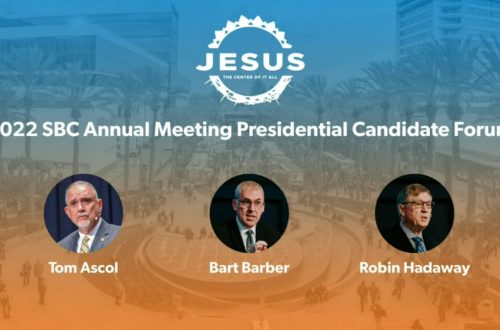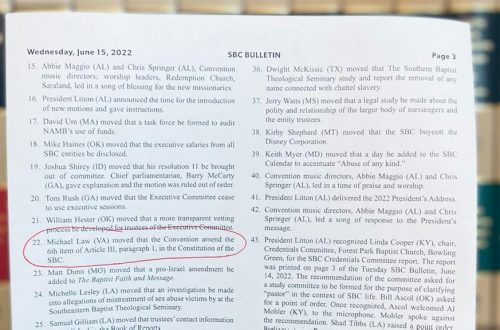The latest issue of Christianity Today arrived in the mail yesterday, and I was interested to note an editorial about the Southern Baptist Convention’s resolution concerning the 2011 NIV. The article represents the editorial opinion of CT, and predictably it disagrees with Southern Baptists about the new NIV.
Readers of this blog will not be surprised that by and large I disagree with CT’s editorial (see my previous posts: reviews of NIV, SBC Resolution, response to translators, response to Bock). But there was at least one item in the article that I do agree with. Here it is:
“The only criterion for a good translation is this: Does it accurately convey what the authors said and what the original listeners heard?” (p. 55)
Assuming that what the “original listeners heard” and what “authors said” are the same thing, I certainly agree. The supposition of the essay, however, seems to be that dynamic equivalence is interested in what the text “means” while formal equivalence is only interested in what the text “literally says.” This kind of language confuses the issue. Both translation philosophies seek to render the text according to what it really means. The difference is that dynamic equivalentists and formal equivalentists disagree with one another about how best to do this.
Anyway, you can read the rest here.




5 Comments
Zack
“Both translation philosophies seek to render the text according to what it really means. The difference is that dynamic equivalentists and formal equivalentists disagree with one another about how best to do this.”
Very well put.
Donald Johnson
Things get lost in every translation,”Translator is a traitor” is a famous saying in Italian. People need to realize that a translation simply cannot be the complete word of God, at best it is an interpretation of the original text and subject to human error. What I look for in a translation is that it gets close, so the subject can be discussed in more detail and that the agenda of the translators is mentioned, so I know where they are coming from.
Henry
What a horrifically misleading article, who wrote it?
Barry Applewhite
I have one question for you, Dr. Burk. Exactly how does anyone know “what the original listeners heard”? Your answer, if you have the time, will be most interesting. For myself, I will say that the hubris in thinking we know what the original listeners hears would seem to be enormous, no matter what translation philosophy is applied. But I will reserve judgment until I hear someone explain how this trick is done.
-Barry
Brent Hobbs
I think the CT article was a fairly good statement of the problems I have the the resolution passed by the SBC. (Which I have talked about in the comments section here before.)
The ending was pretty funny – don’t follow what we say, follow what we do. Does anyone know if or when LifeWay will make a decision about whether or not to stock the NIV2011? Will they just wait til the convention and say they’re declining to remove it from their shelves?